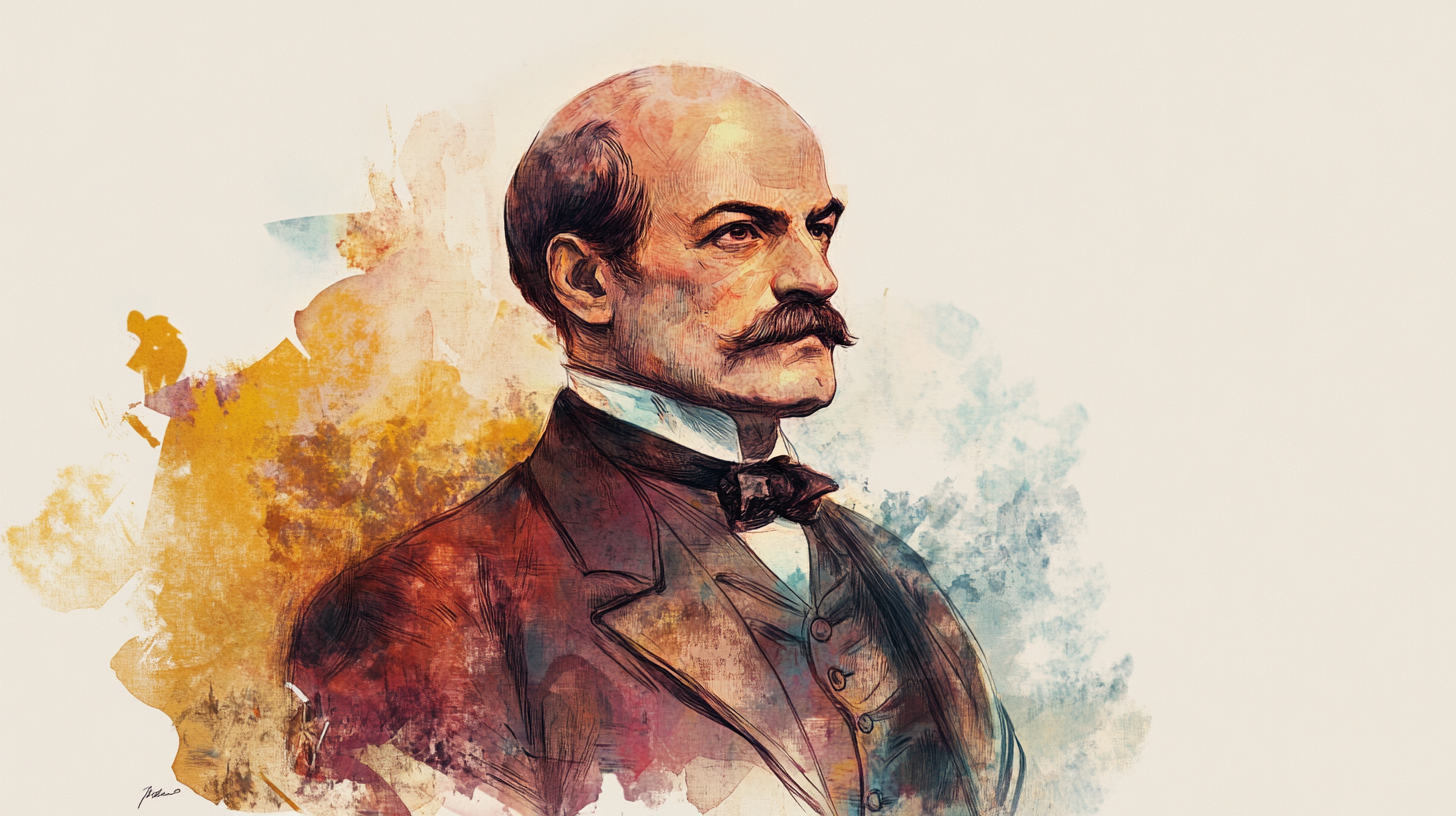Let's step back to Vienna, 1847, where a young doctor named Ignaz Semmelweis is grappling with a troubling mystery. In his hospital, one in six women are dying from childbed fever after giving birth, a tragedy accepted as an unavoidable part of childbirth. But Semmelweis isn't satisfied with this grim reality. He notices something curious: women delivered by midwives are dying at a much lower rate than those attended by doctors.
After months of investigation, Semmelweis has a breakthrough. Unlike the midwives, the doctors are performing autopsies before delivering babies, unknowingly carrying "cadaverous particles" on their hands and infecting the women they're supposed to be helping. Semmelweis introduces a radical idea: doctors must wash their hands with chlorinated lime water before examining patients. The result is astounding—the mortality rate drops from 18% to 2%. You'd think he'd be celebrated as a hero.
Yet, his colleagues reject his findings. They're offended by the implication that their hands could be unclean. Semmelweis is ridiculed, ostracized, and ultimately forced out of the hospital. He dies in an asylum, his revolutionary idea dismissed as a failure. It's far from the heroic ending we might expect.
Fast forward to today, and hand-washing is the cornerstone of medical hygiene, saving countless lives. Semmelweis is now recognized as a pioneer in antiseptic procedures.
So, was he a failure or a success?
In his lifetime, Semmelweis was branded a failure. Yet history paints a different picture, portraying him as a visionary. As is often the business case, outcomes are only sometimes what they appear at first glance.
Take, for example, the Microsoft Kin. In 2010, the team behind this social media-focused smartphone was undoubtedly excited to launch their product, aimed squarely at the youth market. But in less than 48 days, poor sales forced Microsoft to pull the plug on their $1 billion investment.
Or consider Pepsi A.M., introduced in 1989 as a higher caffeine breakfast drink. It lasted only a few months before being discontinued. Consumers weren't ready to trade their morning tea or coffee for a carbonated energy drink. The timing seemed off—ironic, given the energy drink market is now worth billions.
From a young age, we're taught to see the world in stark contrasts—win or lose, good or bad, pass or fail. But this binary approach stifles innovation, crushes dreams, and breeds risk aversion, keeping good companies from becoming great.
In the startup world, we're conditioned to idolize unicorns and decacorns, spinning tales of overnight success. But these "overnight successes" are usually decade-long grinds, riddled with more failures than victories. This selective storytelling doesn't just misrepresent reality; it distorts our perception and paralyzes our actions.
What if we adopted a more nuanced approach to thinking about success or failure—perhaps even a quantum-like perspective? Traditional views on success and failure are binary and don't account for the vast array of possibilities in between. When a project ends, we should evaluate it through an "informational autopsy," mining it for lessons that can be applied to future endeavors.
Outcomes exist on a spectrum, as complex as quantum physics, influenced by a blend of factors both within and beyond our control.
A project that spectacularly fails might still yield insights more valuable than gold. Conversely, hitting all your targets might come at the cost of team burnout, ethical compromises, or missed opportunities, making your "success" feel ratherhollow.
Consider SpaceX, Elon Musk's cosmic venture. It's hailed as a triumph of private space exploration, yet beneath the surface lies a graveyard of exploded rockets. Each of these "failures" cost millions, but instead of giving up, Musk viewed these setbacks as crucial learning opportunities on the path to reusable rockets.
This is the messy, complex reality of progress. It's not a straight line from A to B—it's a stumbling journey through a maze, where each wrong turn teaches something new about the road ahead.
Productive Failure
If we accept that failure isn't the evil twin of success but its conjoined sibling, we need a new playbook. Enter "failing forward"—the art of owning failure as a form of progress, extracting value from every experience, whether it's a home run or a strikeout. It's about failing in a way that propels you forward, not knocks you down.
Google's "X" lab, affectionately known as the "moonshot factory," has turned failure into an art form. They pursue ideas so ambitious that landing on the moon seems like a casual stroll by comparison. Many of their projects crash and burn, but from the ashes rise innovations like self-driving cars and smart contact lenses. Why? Because rather than just tolerating failure, they celebrate it. Each setback provides clues that lead to the next breakthrough.
Rewriting the Rules of Success
Rather than framing success and failure as opposites, how else might we think about achievement?
Gather What Was Learned: Ask your team what was learned on the project, both collectively and individually. What surprises arose along the way? What new questions are we now asking?
Analyze the Data: What is the data telling us? Is there debate over its interpretation? Encourage constructive conflict to let creative sparks fly.
Plan the Next Steps: Using the knowledge we've gained, where do we want to go? Is there a single path forward,or multiple possibilities? What elements should we set aside? What feels extraneous or irrelevant?
Iterate Again: Decide on an experiment and iterate. Determine a stopping point where you'll regroup and repeat the cycle.
Trading Binary for Messy
What if Semmelweis's peers had adopted his experimental thinking, viewing his "failure" as a stepping stone to greater understanding? Imagine the lives that could have been saved, the breakthroughs that might have come sooner. In your organizations, be the Semmelweis who persists. Create environments where ideas can fail safely, because today's "failure"might be tomorrow's breakthrough. Welcome the chaos; it's far more interesting and productive than the monochrome of binary thinking.

